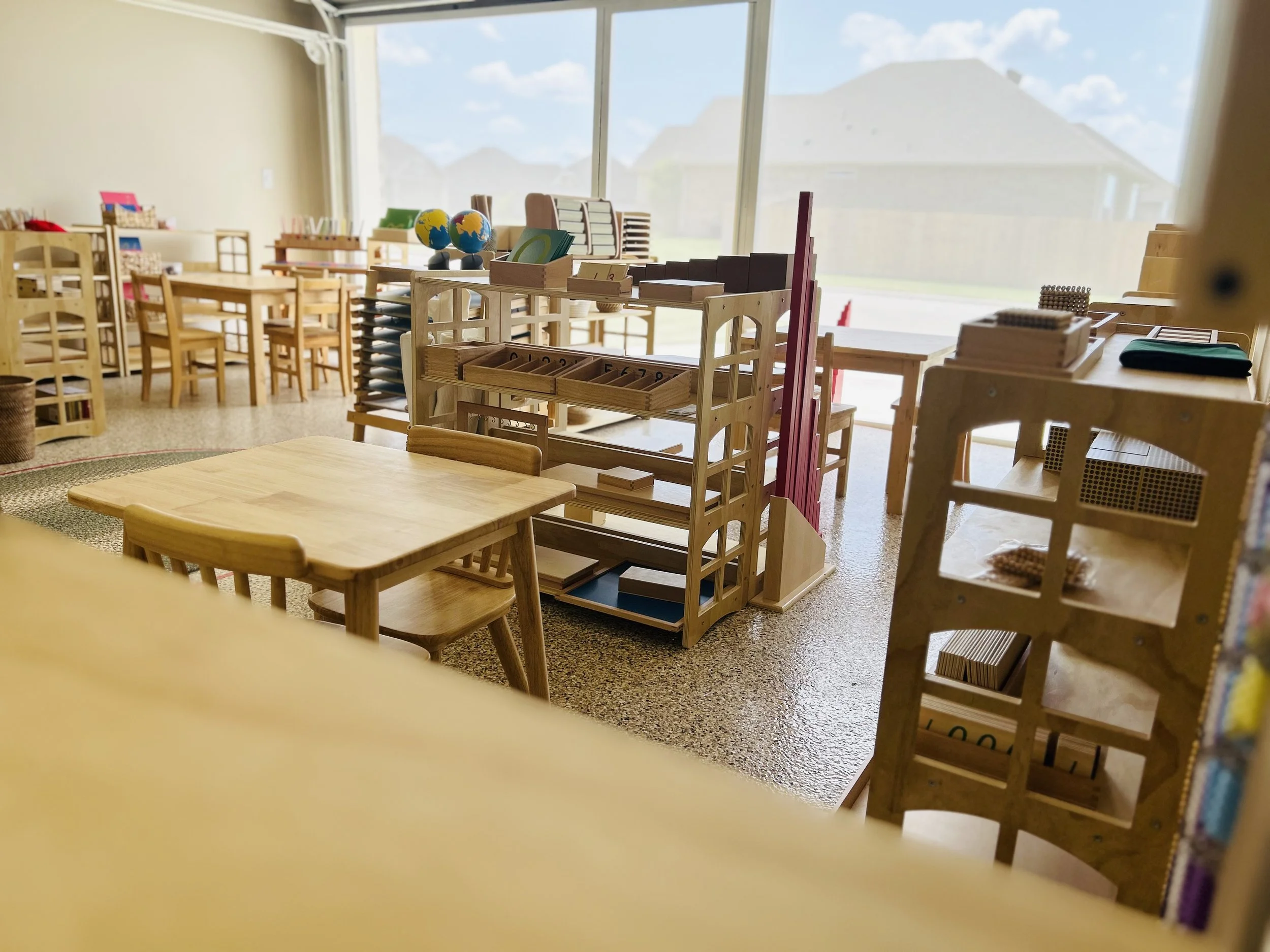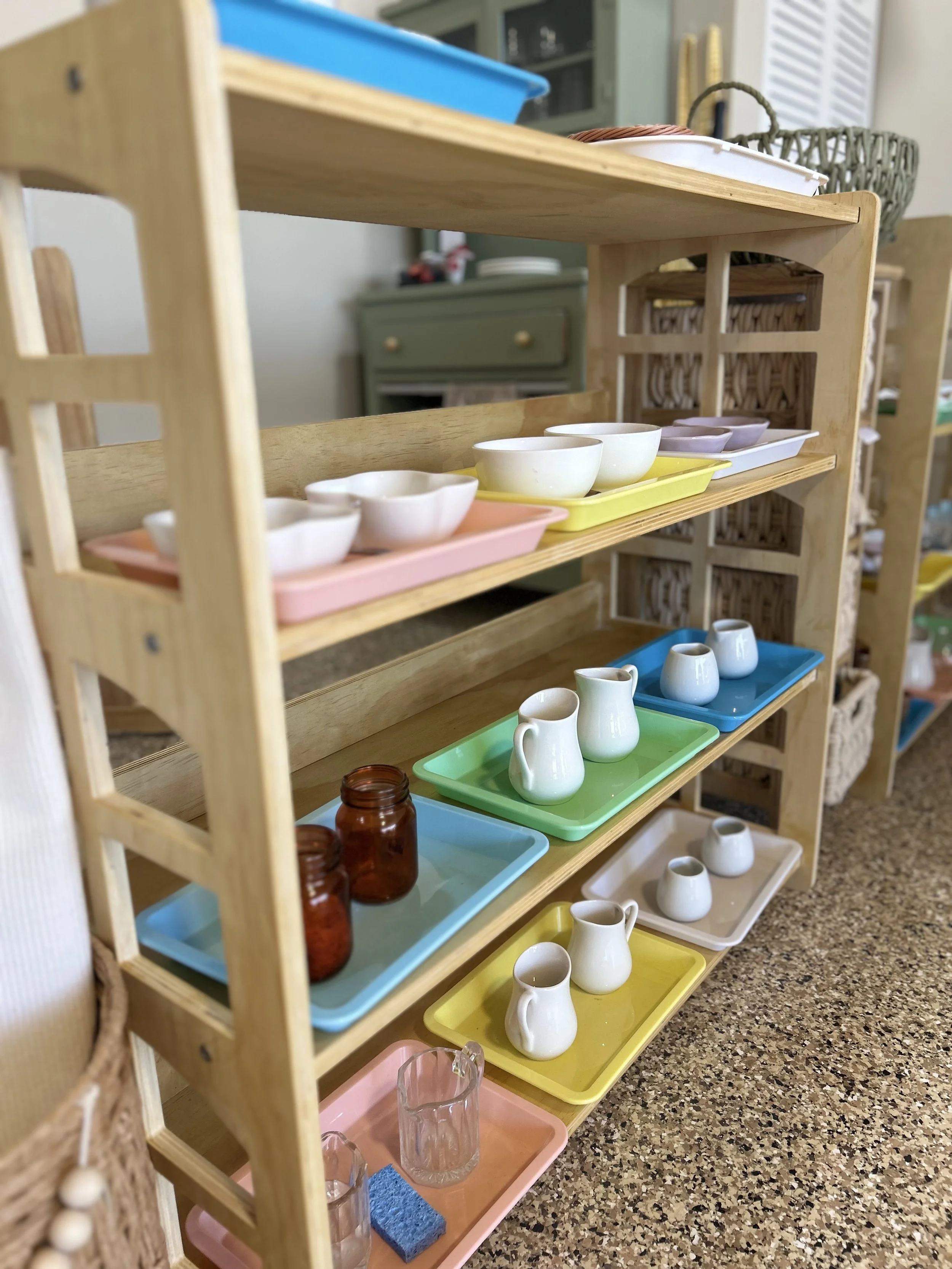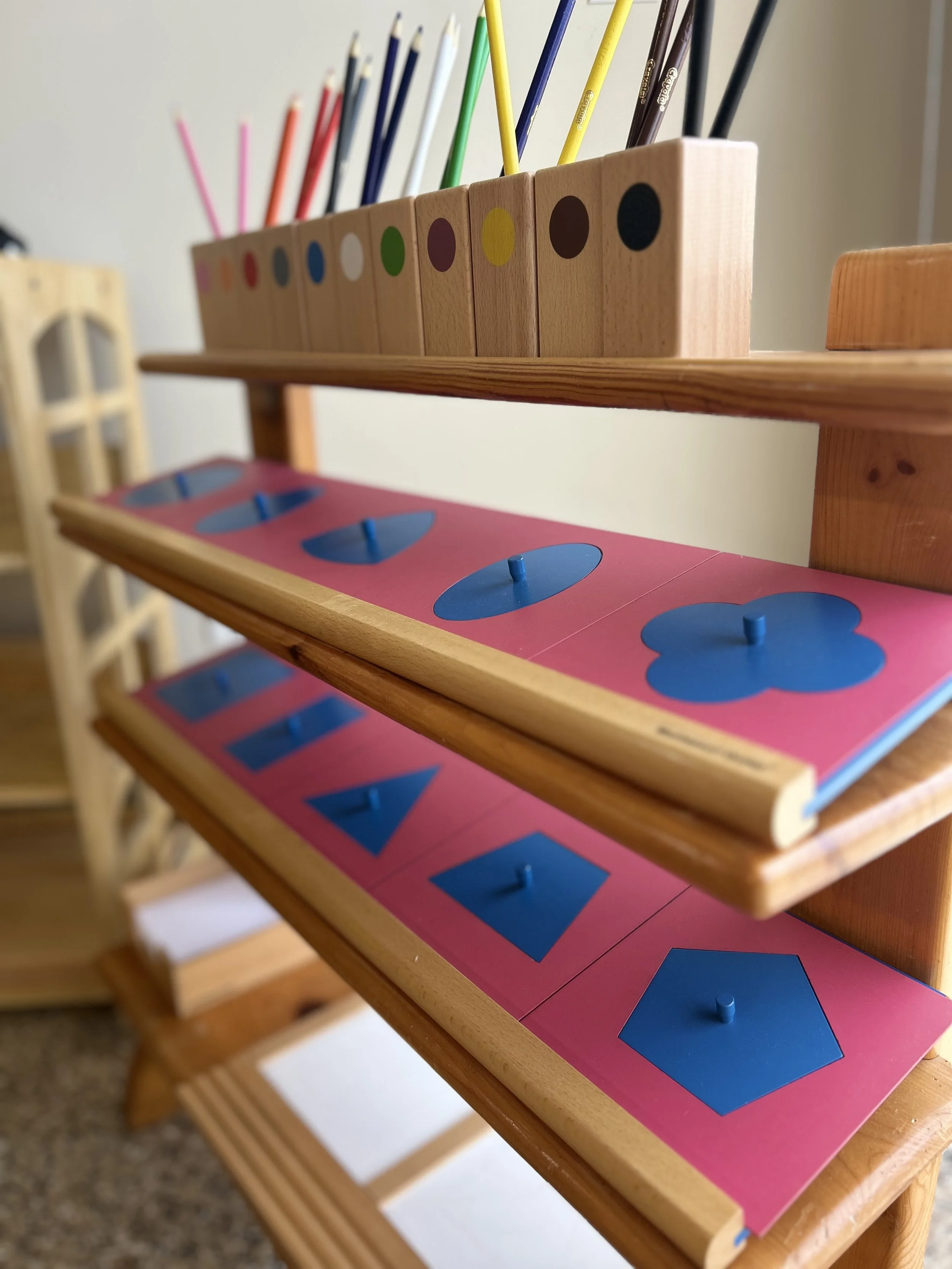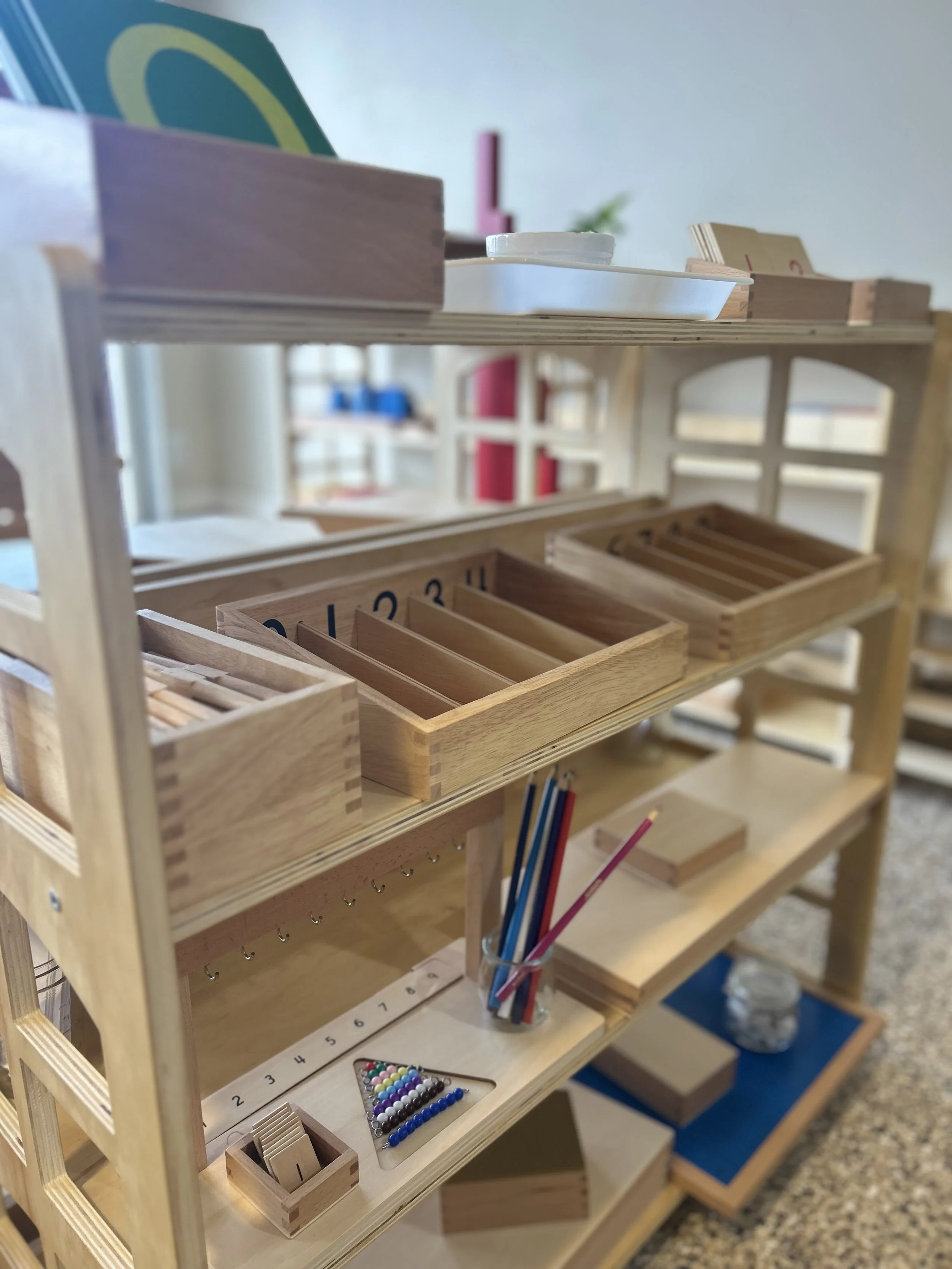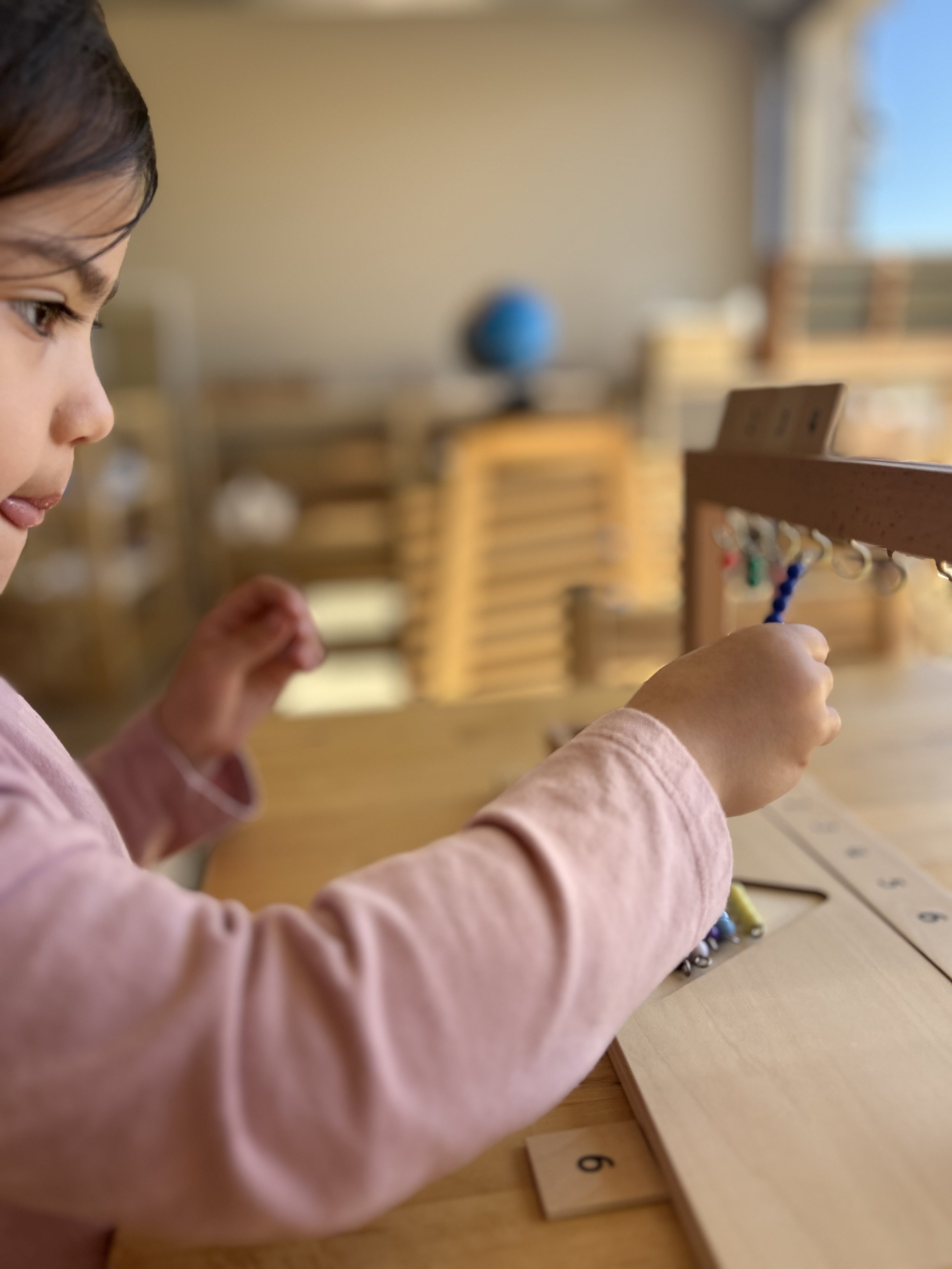
a hands-on education where curiosity is sparked and learning occurs
Grace Montessori School offers a comprehensive program that allows children to understand themselves, explore the world around them, and the role they play within it. See our program below!
Children’s House, Primary
Ages 3 - 6
Our primary program welcomes children ages 3-6 years of age. A cornerstone in Montessori is the three-year cycle. This allows children to fully develop a strong foundation in key skills and concepts by staying in the same setting, with the same Guide and same peers for an extended time. Over the course of three years, children progressively build upon their knowledge, explore their interest deeply, and develop a sense of community and leadership within their learning environment.
Our primary program is comprised of five main areas - Practical Life, Language, Sensorial, Mathematics and Cultural. You can find more information for each area below.
It is our expectation and recommendation that families stay enrolled for three years to take full advantage of our Montessori program.
Our Primary Program runs:
Full Week Program: 8:00 - 3:00
3/4 years of age, only: (optional)
Full Week, Partial Day Program: 8:00 - 11:30
Partial Week, Full Day Program: M/W/F
Montessori’s Five Main Areas
Practical Life
Practical Life lays the foundation for independence, confidence, and self-care. It allows for children to learn self awareness, and to become conscious of their language, behavior, actions, and impact on others. This area falls into four main areas - Care of Self, Care of Environment, Grace & Courtesy, & Control of Movement. Children will learn how to do daily, living activities in a purposeful way. Through these meaningful works, children will not only help foster feelings of security, confidence and self-worth, however, will also increase their concentration, develop their sense of order, social skills, and sharpen their fine motor skills.
Language
Language is a lifelong skill, and our program is continuum of that journey through a hands on approach. We take a comprehensive and individualized approach to literacy development in our students that follow three stages - Preparatory Stage, Symbolic Stage, & Writing and Reading Stage. Through the use of hands on materials, children will learn language & letter sounds, how to combine sounds to make words, how to build sentences, and how to use a pencil. By allowing children to learn at their own pace and providing a solid foundation in phonemic awareness, decoding and comprehension, we equip our students with the tools they need to become confident and proficient learners.
Sensorial
Sensorial is designed to help students refine and develop their ability to observe, compare, & contrast various attributes of the world around them. Sensorial apparatus, activities & materials isolate a specific sensory quality (color, shape, texture, sound or weight) to enhance their five senses - Seeing, Hearing, Touching, Tasting, & Smelling. This will set the foundation for children to be able to classify their surroundings, create order, & discriminate in detail - skills necessary in Math, Geometry & Language. Furthermore, children are building on their concentration, attention to detail, & problem-solving ability.
Mathematics
Mathematics is primarily taught through hands-on manipulation of specifically designed materials, allowing children to concretely grasp concepts like numbers, quantity, and operations through touch & visual perceptions. Students will progress from concrete to abstract understanding using Math apparatus to build a solid foundation in the decimal system and basic operations of Addition, Multiplication, Subtraction & Division. With this student-led approach, students will progress through Mathematical concepts based on their individual understanding and abilities using these hands-on materials & activities that facilitate exploration and self-discovery.
Cultural
Our Cultural area is comprised of these - Geography, Zoology, Botany, Biology, Music & Art. Through these areas, children are introduced to the physical world of plants and animals, the exploration of differences and similarities among people and the opportunity to see, hear, taste, smell & manipulate the real things that make up their unique cultural environment. Early exposure of diverse people and its cultures fosters an understanding and appreciation for global differences, promotes respect for all living things and builds a foundation of empathy and global citizenship from a young age.
The Capstone Year, Kindergarten
.
The Kindergarten Year in Montessori
The third and final year of the Children’s House, often called the Kindergarten Year, is a truly special milestone. After spending two to three years in the same nurturing environment, children step into a natural role as leaders of the classroom. These oldest students are often the ones concentrating deeply, working with confidence, and extending kindness and guidance to their younger peers.
The Role of the Kindergarten Year
Dr. Maria Montessori envisioned the Primary program as a complete three-year cycle. The final year is a pivotal time when the foundation laid in previous years comes together, and a child’s deeper understanding begins to flourish. With greater privileges and responsibilities, students take on more advanced academic work while also experiencing remarkable growth in independence, leadership, and social-emotional development.
Learning at Their Own Pace
Montessori education respects each child’s unique path of development. Some children may discover reading comes quickly, while others may find their strengths in math, art, or hands-on activities. The three-year cycle provides the time and space for children to master skills without pressure, allowing growth to unfold naturally. Rather than being held to arbitrary timetables, students are free to progress in a way that builds both competence and confidence.
Becoming Leaders
The Kindergarten year is also a year of mentorship. Older children share their knowledge with younger classmates, strengthening their own understanding while developing empathy, patience, and leadership. This opportunity to guide others nurtures self-esteem and gives students a lasting sense of responsibility and pride in their abilities.
The Kindergarten year is the culmination of the Montessori journey in the Children’s House—an irreplaceable experience that allows children to step into leadership, independence, and joy in learning.
Preparing for the Next Chapter
As children transition from the Primary program into first grade, they carry with them the confidence and skills nurtured through their Montessori journey. Having learned to work independently, follow routines, and adapt to new expectations, our graduates step forward as capable, curious, and resilient learners.
At Grace Montessori School, we are honored to guide children through these formative years. By fostering a love of learning and encouraging each child’s unique growth, we ensure that when the time comes, they are not only prepared for the academic journey ahead but also equipped with the confidence, independence, and joy that make learning a lifelong adventure.
